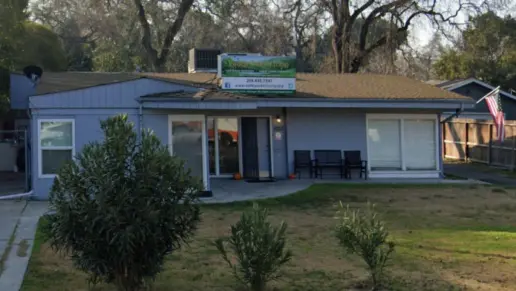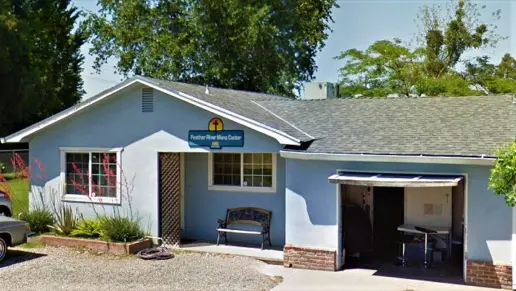About Center For Discovery Torrance
The Center for Discovery is an eating disorder treatment facility that also deals with co-occurring mental illnesses and substance abuse issues. They work with children, adolescents, and adults, offering gender-specific, and LGBTQIA-inclusive programs. Clients are treated at a partial hospitalization (PHP) or intensive outpatient (IOP) level. You'll find 'em located in Torrance, California.
Partial hospitalization treatments include medication management and meal supervision. Clients undergo individual, family, group, and nutritional counseling to equip them with knowledge and skills. They are typically overseen by a team of medical professionals. Clients who experience a co-occurring eating and substance abuse disorder are referred to Alcoholics Anonymous, Narcotics Anonymous meetings, or a drug rehab center. They sleep at home and return to the center each day.
Intensive outpatient treatment allows clients the freedom to work or attend school, while still experiencing the support of the program. They attend individual or group therapy three-to-six times, for a minimum of nine hours a week.
Their aftercare provides lifelong support for program alumni that includes online and in-person support groups, social events, and an alumni app that provides educational content.
Center for Discovery works with most major insurers, including Beacon Health Strategies, Cambia Health Solutions, Employee Health Network (EHN), Fresno County, HealthNet, Kaiser, MODA, Sharp, UHA, and WellPoint. Confirm your out-of-network benefits with your provider before checking in.
Rehab Score
Gallery
Accepted Insurance














Other Forms of Payment
Self-pay involves paying for treatment out of your own pocket. You can use savings or credit, get a personal loan, or receive help from family and friends to fund your treatment. If you don't have insurance or your insurance plan doesn't cover a specific program, self-pay can help ensure you still get the care you need.
Private insurance refers to any kind of healthcare coverage that isn't from the state or federal government. This includes individual and family plans offered by an employer or purchased from the Insurance Marketplace. Every plan will have different requirements and out of pocket costs so be sure to get the full details before you start treatment.
Military members, veterans, and eligible dependents have access to specific insurance programs that help them get the care they need. TRICARE and VA insurance can help you access low cost or no cost addiction and mental health treatment. Programs that accept military insurance often have targeted treatment focused on the unique challenges military members, veterans, and their families face.
Addiction Treatments
Levels of Care
Treatments
Substance rehabs focus on helping individuals recover from substance abuse, including alcohol and drug addiction (both illegal and prescription drugs). They often include the opportunity to engage in both individual as well as group therapy.
Programs


Clinical Services
Cognitive Behavioral Therapy (CBT) is a therapy modality that focuses on the relationship between one's thoughts, feelings, and behaviors. It is used to establish and allow for healthy responses to thoughts and feelings (instead of unhealthy responses, like using drugs or alcohol). CBT has been proven effective for recovering addicts of all kinds, and is used to strengthen a patient's own self-awareness and ability to self-regulate. CBT allows individuals to monitor their own emotional state, become more adept at communicating with others, and manage stress without needing to engage in substance abuse.
Dialectical Behavior Therapy (DBT) is a modified form of Cognitive Behavioral Therapy (CBT), a treatment designed to help people understand and ultimately affect the relationship between their thoughts, feelings, and behaviors. DBT is often used for individuals who struggle with self-harm behaviors, such as self-mutilation (cutting) and suicidal thoughts, urges, or attempts. It has been proven clinically effective for those who struggle with out-of-control emotions and mental health illnesses like Borderline Personality Disorder.
Eating disorders include anorexia, bulimia, binge eating, and dysfunctional eating patterns. Many psychologists and other mental health professionals consider eating disorders to be food addictions, meaning food is being used in an addictive way (similar to drug or alcohol addiction). Certain substance abuse treatment programs will have treatment for eating disorders as one of the services offered. An eating disorder may also present as a co-occuring disorder or dual diagnosis alongside drug and alcohol addiction.
Trauma therapy addresses traumatic incidents from a client's past that are likely affecting their present-day experience. Trauma is often one of the primary triggers and potential causes of addiction, and can stem from child sexual abuse, domestic violence, having a parent with a mental illness, losing one or both parents at a young age, teenage or adult sexual assault, or any number of other factors. The purpose of trauma therapy is to allow a patient to process trauma and move through and past it, with the help of trained and compassionate mental health professionals.
Amenities
-
Yoga Studio
Accreditations

The Joint Commission, formerly known as JCAHO, is a nonprofit organization that accredits rehab organizations and programs. Founded in 1951, the Joint Commision's mission is to improve the quality of patient care and demonstrating the quality of patient care.
Joint Commission Accreditation: Yes
Contact Information
21515 Hawthorne Blvd Ste 370
Torrance, CA 90503














